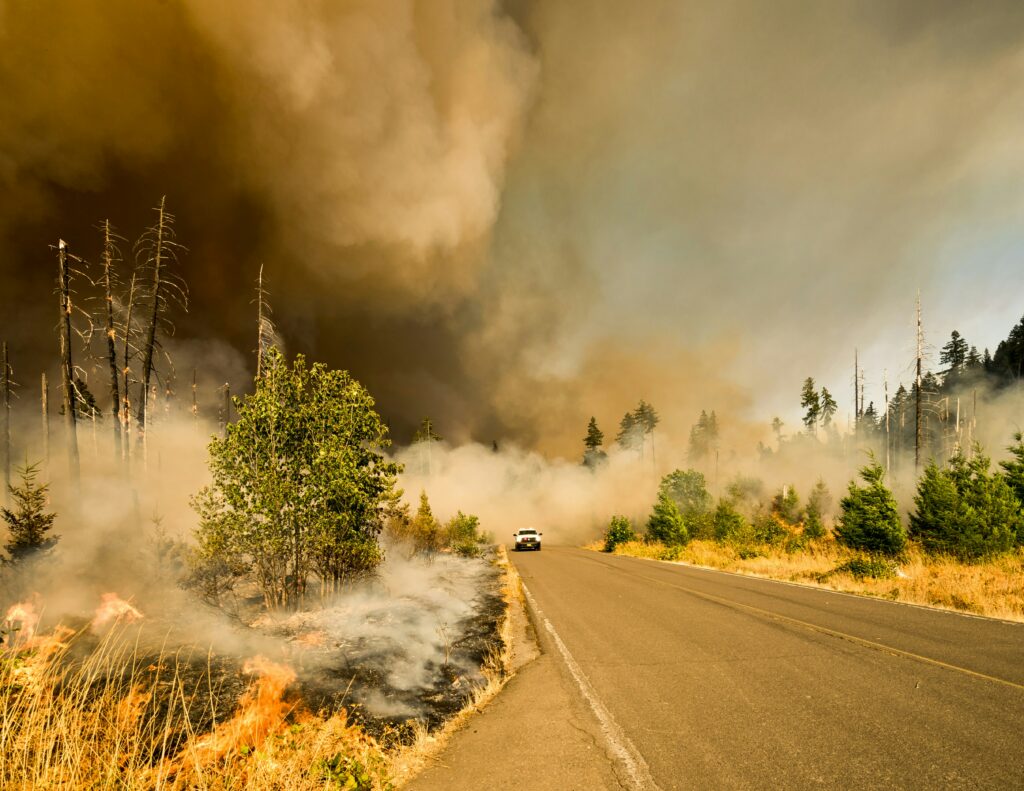Climate change has become an undeniable reality, and its impact on extreme weather events cannot be overstated. As we witness increasingly frequent and severe heatwaves, droughts, wildfires, and floods, it’s imperative to recognise the role of climate change in exacerbating these phenomena. While extreme weather events have always occurred naturally, the intensification and frequency we’re experiencing are largely attributed to human-induced climate change.
More Extreme Rain
 With every 1°C rise in average temperature, the atmosphere can hold about 7% more moisture, leading to heavier rainfall events. Recently, regions like Dubai, the UAE, and Oman experienced unprecedented rainfall, causing significant flooding. The heavy rainfall events have become 10-40% heavier due to climate change, according to the World Weather Attribution group. Similarly, parts of East Africa and northern Libya have also been devastated by intense flooding, with climate change amplifying the severity of these events.
With every 1°C rise in average temperature, the atmosphere can hold about 7% more moisture, leading to heavier rainfall events. Recently, regions like Dubai, the UAE, and Oman experienced unprecedented rainfall, causing significant flooding. The heavy rainfall events have become 10-40% heavier due to climate change, according to the World Weather Attribution group. Similarly, parts of East Africa and northern Libya have also been devastated by intense flooding, with climate change amplifying the severity of these events.
Hotter, Longer Heatwaves
Rising temperatures contribute to more frequent and intense heatwaves, with record-breaking temperatures observed worldwide. Mali recently experienced scorching temperatures of 48.5°C during an extreme heatwave, leading to increased hospitalisations and deaths. In the UK, temperatures soared above 40°C for the first time on record in 2022, causing widespread disruption. Heatwaves are becoming longer and more persistent, posing significant health risks and economic challenges.
Longer Droughts
While linking specific droughts directly to climate change can be complex, human-induced warming exacerbates drought conditions by drying out soil and intensifying heat. Regions like East Africa have faced prolonged droughts, displacing millions of people and causing severe water shortages. The Amazon rainforest, too, experienced its worst drought in decades, with climate change identified as the primary driver.
More Fuel for Wildfires
 Climate change creates the ideal conditions for wildfires by increasing temperatures, drying out vegetation, and amplifying fire weather. Canada experienced its worst wildfire season on record in 2023, with extreme fire weather conditions doubling in likelihood due to climate change. Rising temperatures also heighten the risk of lightning strikes, further igniting fires in vulnerable ecosystems.
Climate change creates the ideal conditions for wildfires by increasing temperatures, drying out vegetation, and amplifying fire weather. Canada experienced its worst wildfire season on record in 2023, with extreme fire weather conditions doubling in likelihood due to climate change. Rising temperatures also heighten the risk of lightning strikes, further igniting fires in vulnerable ecosystems.
As extreme weather events become more frequent and severe, it’s crucial to acknowledge that this is not the new normal, nor should it be accepted as such. Urgent action is needed to mitigate climate change and its impact on our planet. By transitioning to renewable energy sources, implementing sustainable land management practices, and adopting resilient infrastructure, we can mitigate the worst effects of climate change and build a more sustainable future for generations to come. The time to act is now.






